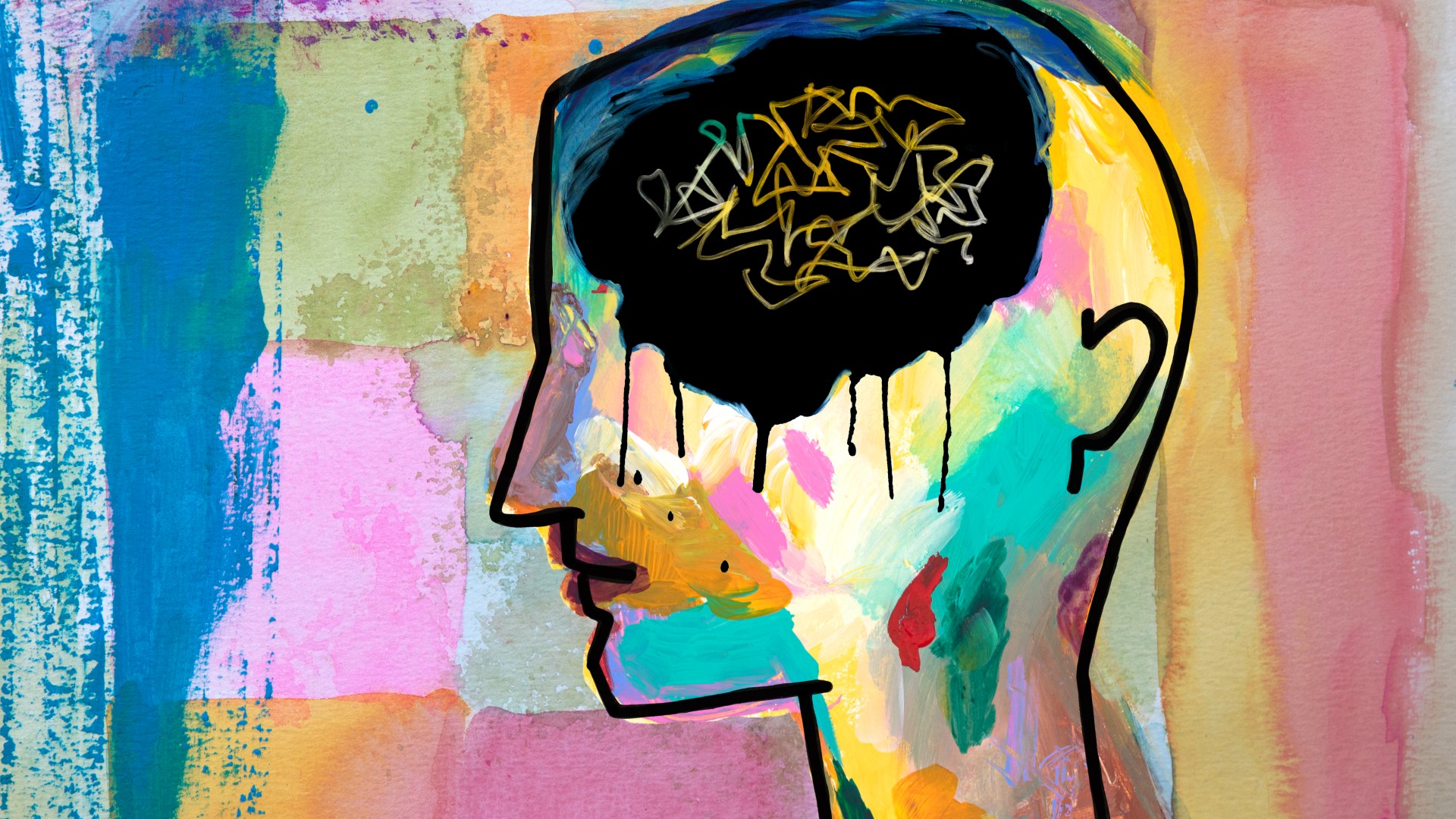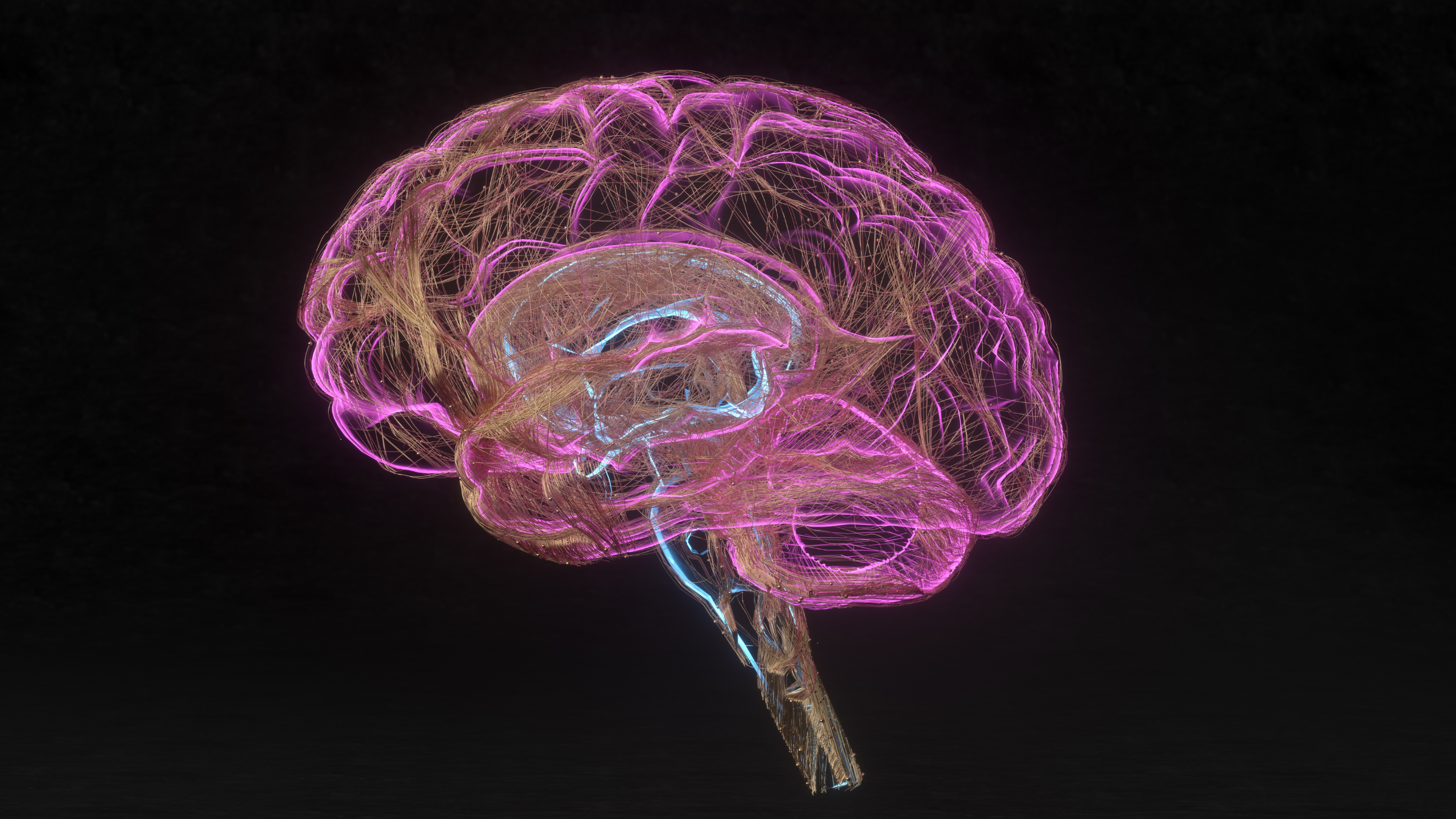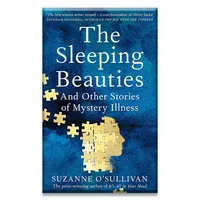It's not 'all in your head' — neurologist Suzanne O'Sullivan on psychosomatic illness
In her clinic, neurologist Suzanne O'Sullivan often sees patients with psychosomatic illness — conditions she believes are widely misunderstood. She's now on a mission to change that.
Get the world’s most fascinating discoveries delivered straight to your inbox.
You are now subscribed
Your newsletter sign-up was successful
Want to add more newsletters?

Delivered Daily
Daily Newsletter
Sign up for the latest discoveries, groundbreaking research and fascinating breakthroughs that impact you and the wider world direct to your inbox.

Once a week
Life's Little Mysteries
Feed your curiosity with an exclusive mystery every week, solved with science and delivered direct to your inbox before it's seen anywhere else.

Once a week
How It Works
Sign up to our free science & technology newsletter for your weekly fix of fascinating articles, quick quizzes, amazing images, and more

Delivered daily
Space.com Newsletter
Breaking space news, the latest updates on rocket launches, skywatching events and more!

Once a month
Watch This Space
Sign up to our monthly entertainment newsletter to keep up with all our coverage of the latest sci-fi and space movies, tv shows, games and books.

Once a week
Night Sky This Week
Discover this week's must-see night sky events, moon phases, and stunning astrophotos. Sign up for our skywatching newsletter and explore the universe with us!
Join the club
Get full access to premium articles, exclusive features and a growing list of member rewards.
U.K. neurologist Dr. Suzanne O'Sullivan has spent her life treating psychosomatic illnesses, or disorders in which people suffer from debilitating physical symptoms that cannot be explained by a physical examination or medical investigation.
Psychosomatic illnesses may overlap with what are termed "functional disorders," though the latter may not have any psychological component. One example of psychosomatic illness are psychogenic nonepileptic seizures, in which a person experiences seizure-like attacks without the telltale explosion of electrical activity seen in the brains of people with epileptic seizures.
Medicine has a long and ignominious history with conditions for which they cannot find a physical cause, often dismissing them with sexist terms such as "hysteria." But that is a fundamental misunderstanding of how these very real illnesses manifest.
While many people with these conditions are told "it's all in your head," or dismissed as hypochondriacs, that's problematic, says O'Sullivan, a consultant neurologist at the National Hospital for Neurology and Neurosurgery and the author of "The Sleeping Beauties: And Other Stories of Mystery Illness" (Pantheon, 2021).
Related: In a 1st, scientists combine AI with a 'minibrain' to make hybrid computer
As part of her work, O'Sullivan aims to reduce the stigma and clear up misunderstandings about psychosomatic illness.
Live Science talked to O'Sullivan about why these conditions are so poorly understood, how they're diagnosed, and why treatments for them so often fail.
Get the world’s most fascinating discoveries delivered straight to your inbox.
Emily Cooke: How often are psychosomatic disorders misdiagnosed, and how many doctors are aware of the symptoms and how to treat them?
Suzanne O'Sullivan: I don't think that there's a problem with awareness amongst doctors. I think there's a problem with how they explain it to patients and their understanding of it and whether they're open minded to it being an unconscious process.
So, it's super common. When I was training, it was never taught, which is why we do it so badly. And I think that basically, the problem isn't so much that doctors aren't aware, it's the problem that they still have lingering doubts that the person is really sick and not doing it on purpose.
A lot of doctors still have lingering doubts that if you've got a pain due to a disease and a pain due to psychosomatic problems, the doctors still have a bit of a problem understanding that both these pains can be equally painful.
So I think it's not an awareness problem; it's a problem with a lot of old fashioned hang-ups. … They think it's not as severe as [other] diseases, they don't take it as seriously as [other] diseases. I think that's more of a problem rather than a lack of awareness. So they alienate patients into backing away from the diagnosis.
I think a lot of people think that we make this diagnosis because we can't find a disease. We've exhausted all the options and therefore we're saying, "Oh, we can't find anything else, it must be stress." That isn't it.
Usually, we make it on positive features of the diagnosis [or symptoms characteristic of the diagnosis]. So in neurology, for example, the pattern of muscle weakness for someone with a psychosomatic disorder is a completely different pattern than for someone with a brain disease. So it's important that people understand we're not making this as a diagnosis of dismissal. We're not saying, "You have it because you look like an anxious young woman or because your tests are normal." We're saying it because features of the illness are consistent with it in just the same way as if you came to me with a migraine and you describe all the symptoms of migraine, I'd say it's migraine based on the symptoms.
Related: Scientists debunk myth that human brains are 'underdeveloped' at birth
EC: Is hypochondria a form of psychosomatic disorder?
SO: What happens in hypochondria is that people are disabled by worry about disease, and they might not actually have any symptoms, but it's the anxiety about developing a cancer or some tiny little lump. It's the anxiety that disables them, whereas in psychosomatic symptoms, often people have no [diagnosed] anxiety or depression or emotional symptoms, and it is purely the physical symptoms that disables them.
EC: Are some people more prone to developing psychosomatic conditions or maybe experiencing them multiple times in their lives?
SO: I think there are people who have a tendency to it.
So I see people at quite a severe end of the spectrum with [psychogenic] seizures, and most of the people I see will have multiple others [symptoms]. So before me, they will have seen the cardiologist with palpitations and they will have seen the rheumatologist with joint pain. So it is a kind of a thing that you have a tendency to, and therefore you might get it lots of times in lots of different forms.
We're all a bit different. Some people complain by ringing their mother and complaining for hours or some people cry, some people take to their beds, and this is just a way that some people express their distress. And if you do express it that way, you will probably express it that way in multiple forms, and you probably always will. So even if I am able to deliver the diagnosis perfectly to that person so that they understand it and are able to work with it and get better, in the future, they will get another psychosomatic symptom. But the difference will be that the next time they feel it, that sort of attention cycle, that fear and avoidance cycle, they can stop it so they get the symptom, and it doesn't lead to disability.
Related: Electrical stimulation could treat traumatic brain injuries
EC: But then they're learning these techniques…
SO: It's about how you respond to that symptom when it happens [that] decides what will happen next. If you can just adjust how you respond, then you might find that the next symptom you get is really brief and transient and you get better with time.
EC: You mentioned in your talk that you see at least three seizures a week that have a psychological cause. Are they the most common symptoms that you would see of psychosomatic disorders?
SO: Well, no, they're the most common I see because I am a neurologist who deals with epilepsy, but basically these things are equally common in every symptom you can imagine.
So I don't want to claim to know the statistics for cardiology, but I would imagine it's very similar, that a very similar percentage of people who go to [a] cardiologist with chest pain and palpitations. … I see it as [psychogenic] seizures, my colleagues who deal with nerve diseases see it as paralysis, the cardiologists see it as palpitations. I can't explain to you the percentages for every group, but I think that it will probably represent a third of consultations for most specialists.
EC: So, looking forward, you mentioned that this is a relatively newly-defined area of science, you talked about in the 21st century, what are the big emerging topics or unanswered questions that are facing the field right now?
SO: I'd say in the last 20 years, scientists have really become interested in [psychosomatic illness] and the main focus of attention at the moment is really trying to understand these brain mechanisms.
And I think that's an enormously useful bit of research because the difficulty with patients — you can imagine if you were paralyzed and someone says "this is psychosomatic," the thing that will most help you move forward is if the doctor can say to you, "these are the brain mechanisms that are causing your paralysis." A real stumbling block for people is like, "how could stress possibly cause this?"
So a big focus for research now is mechanisms to help people understand what's happening to their bodies. But I would say that where we are really still making almost no progress is actually on treatment. We're still kind of using short courses of talking therapies and things that aren't terribly successful for these things.
Related: Traumatic memories are processed differently in PTSD
EC: So at the moment, it's mainly focused on treating the psychological side, so like psychotherapy, you mentioned CBT [cognitive behavioral therapy], for example?
SO: Yeah, it depends on the symptom.
For [psychosomatic] seizures, the standard treatment is CBT and that absolutely works for some people and then it doesn't work for other people. It's only really in recent years that they really began to remember that these are physical diseases, so that somebody who has this, they're physically disabled by their seizures, physically disabled by their paralysis.
What's beginning to happen now, people are realizing is, it's mad to send someone who's having lots of seizures and can't walk just to a psychologist. So we're beginning to introduce physical therapies. You know, if somebody had a stroke, you wouldn't just give them blood thinners, you would teach them to walk again. So beginning to provide more of a multidisciplinary team approach, which will be appropriate to the symptom that you have, then a physio[therapist] might be the main treatment for some people, an occupational therapist might be or could be just CBT to get over your fear.
So they're the treatment programs at the moment. I don't know what the correct treatment is yet. … The sorts of seizures I'm describing, psychosomatic seizures, only about 30% of people get better. So CBT works, but 70% of people don't get better. So that's the current treatment. Is that the perfect treatment? No, and I think that's where we need to be going with research.
Editor's Note: This interview has been lightly edited and condensed.
The Sleeping Beauties: And Other Stories of Mystery Illness — from $11.99 on Amazon
Motivated by a moving experience with Sweden's sleeping refugee children, Wellcome Prize laureate and neurologist Suzanne O’Sullivan journeys the globe to explore communities affected by outbreaks of enigmatic 'mystery' illnesses.

Emily is a health news writer based in London, United Kingdom. She holds a bachelor's degree in biology from Durham University and a master's degree in clinical and therapeutic neuroscience from Oxford University. She has worked in science communication, medical writing and as a local news reporter while undertaking NCTJ journalism training with News Associates. In 2018, she was named one of MHP Communications' 30 journalists to watch under 30.
 Live Science Plus
Live Science Plus










